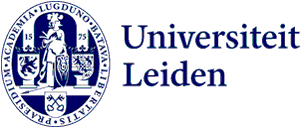Lecture | INVISIHIST event
Arrested Development: The Soviet Union in Ghana, Guinea, and Mali, 1955-1968
- Date
- Thursday 22 February 2024
- Time
- Address
-
Lipsius
Cleveringaplaats 1
2311 BD Leiden - Room
- 1.48
About the event
The INVISIHIST research project invites all faculty and students to a special event hosted on 22nd February with Alessando Iandolo, lecturer at University College London. The event will be held in collaboration with the Cold War Research Network (Utrecht University, University of Amsterdam, Leiden University). Dr Frank Gerits of Utrecht University will act as discussant. Registration is not required for this special event.
As part of the 2023-2024 INVISIHIST lecture series, Alessandro’s lecture will explore his acclaimed recent book, Arrested Development: The Soviet Union in Ghana, Guinea, and Mali, 1955-1968 (Cornell University Press, 2022). The book examines the USSR's involvement in West Africa during the 1950s and 1960s as aid donor, trade partner, and political inspiration for the first post-independence governments in Ghana, Guinea, and Mali.
Buoyed by solid economic performance in the 1950s, the USSR opened itself up to the world and launched a series of programs aimed at supporting the search for economic development in newly independent countries in Africa and Asia. These countries, emerging from decades of colonial domination, looked at the USSR as an example to strengthen political and economic independence. Based on extensive research in Russian and West African archives, Alessandro Iandolo explores the ideas that guided Soviet engagement in West Africa, investigates the projects that the USSR sponsored "on the ground," and analyzes their implementation and legacy.
The Soviet specialists who worked in Ghana, Guinea, and Mali collaborated with West African colleagues in drawing ambitious development plans, supervised the construction of new transport infrastructure, organized collective farms and fishing cooperatives, conducted geological surveys and mineral prospecting, set up banking systems, managed international trade, and staffed repairs workshops and ministerial bureaucracies alike. The exchanges and clashes born out of the encounter between Soviet and West African ideas, ambitions, and hopes about development reveal the USSR as a central actor in the history of economic development in the twentieth century.
About the speaker
Alessandro Iandolo is a historian of the Soviet Union and the world. His research interests cover the USSR’s economic, intellectual, and political interactions with external ideas, states, and people. His current project investigates intellectual exchanges between Soviet and Latin American economists on theorizing “backwardness” and “dependency.” He is a Lecturer in Soviet and Post-Soviet history at University College London. Alessandro received his PhD from Oxford University in 2012. Thereafter, he held multiple postdoc positions at the London School of Economics, Columbia University, and Harvard University.
Organisation
This event is organised by the Invisible History of the United Nations and the Global South (INVISIHIST) research project under the leadership of Dr Alanna O’Malley, Associate Professor at Leiden University’s Institute for History. INVISIHIST looks to reveal and unravel the invisible histories of the UN, transcending the dominant Western perspective to recover the historical agency of Global South actors. The research will investigate how the UN has both facilitated and limited their role in shaping global order from 1945-1981. The project is funded by the European Research Council and is available to listen to on the Global Orders podcast.
